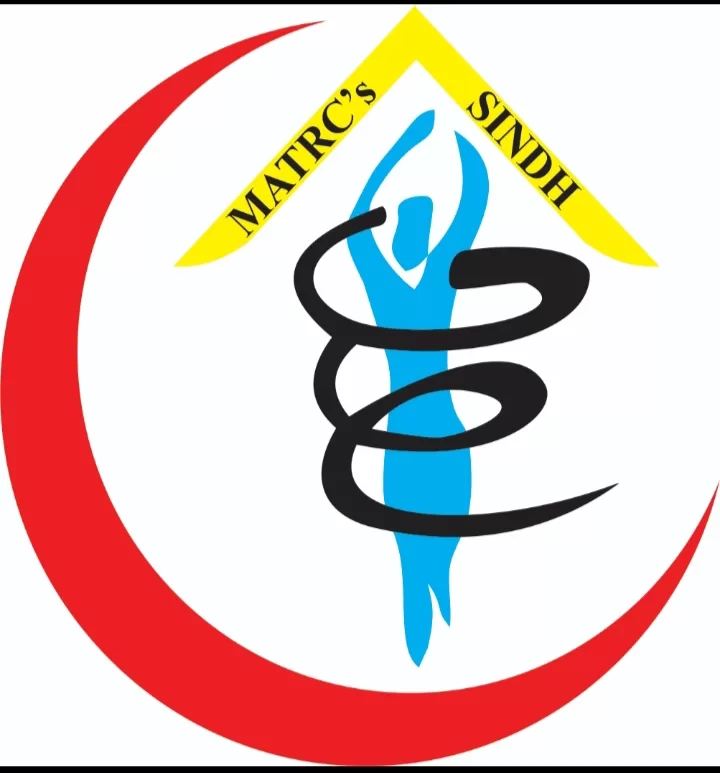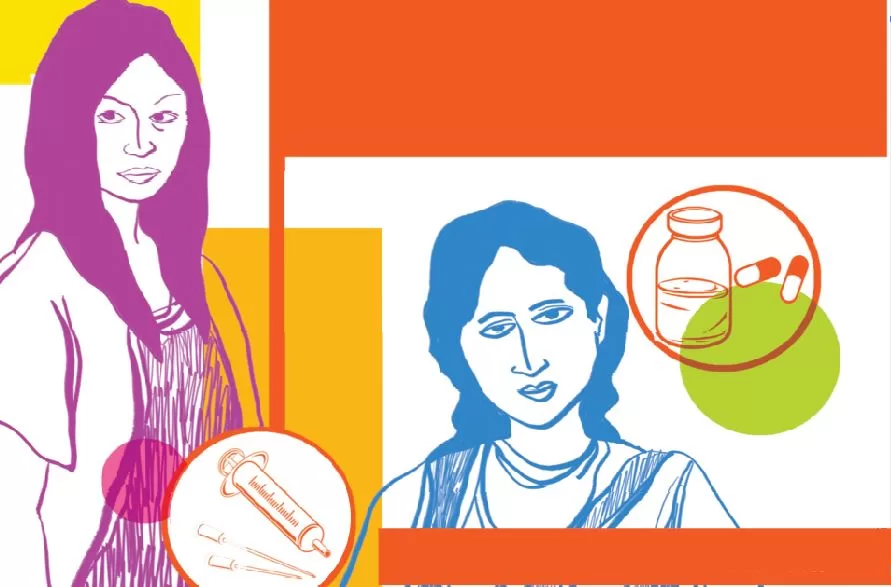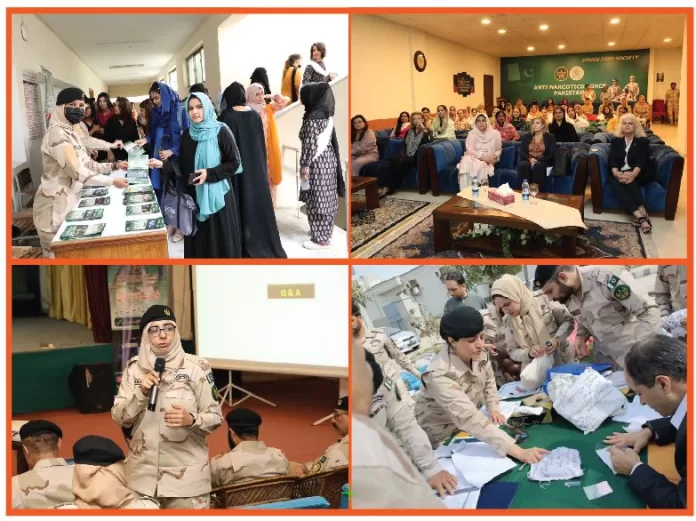A LEGACY OF MISCALCULATION AND NEGLECT
Drug abuse is a universal social issue that affects individuals and communities worldwide, including Pakistan. The country struggles with drug trafficking and consumption, leading to severe social, economic, and health issues. Amidst these challenges, women in Pakistani society possess substantial capability to serve as moral deterrent against drug prevalence. Their distinct roles as mothers, educators, community leaders, and social advocates, law enforcement officers, researchers, policy makers, mentors and role models, can foster positive change and generates a safer environment for future generations. This article explores the vital role of women in Pakistani society as moral deterrent against drug prevalence. The social and cultural dynamics in Pakistani society place women in exclusive positions that can be capitalized to address drugs issue effectively.
Women have held central positions within the family structure in Pakistan. As mothers, wives, sisters and daughters, they are key influencers in shaping the values and attitude of their family. By instilling strong moral values, promoting open communication, and providing emotional support, women can play a decisive role in deterring drug abuse among their family members and in the society.
Women can contribute immensely through their active role in education and awareness campaigns. Their significant proportion in the teaching profession can help students and parents in developing common understanding on effects of illicit drugs. They can circulate information and awareness about the hazards of drug abuse. They work in schools, community centers, and outreach programs to educate young people and families about the risks of drugs.
Rehabilitation and support services are critical for individuals seeking to break free from drug addiction. Women can contribute significantly as counselors, therapists, and caregivers, providing a nurturing and empathetic environment and can also participate and arrange awareness initiatives meant for drug eradication from the society for those in need of help. They work in healthcare settings, rehabilitation centers, and counseling services, offering counseling, therapy, and medical assistance to help those affected by drug abuse on their road to recovery.
The integration of women in law enforcement agencies can have a transformative influence on the fight against drug trafficking. With their unique perspectives and communication skills, female officers can bring a different approach to combating drug cartels. Women in law enforcement can have a significant impact on addressing drug abuse by actively engaging with their communities, supporting prevention and treatment efforts, and promoting a culture of accountability and support within their agencies.
Women work in research and policy making institutes where they can contribute to research on drug abuse, its impacts, and effective intervention techniques. They also participate in policymaking and shaping legislation related to drug prevention, treatment, and demand reduction. Their input helps create more inclusive and effective policies.
Women’s unique experiences with drug use may differ from men and this understanding is key in developing gender-specific approaches to drug prevention and treatment. Female role models who have overcome drug addiction and built successful lives serve as example for others struggling with similar issues.
Empowering women to assume leadership roles within their communities can lead to more effective strategies to combat drug prevalence. Women can spearhead grassroots initiatives, support rehabilitation programs, and engage in advocacy efforts to create a drug-free society.

Despite their potential, women in Pakistani society face various challenges, including traditional gender roles, lack of access to education and resources, and cultural barriers. Addressing these challenges and empowering women to take an active role in fighting drug prevalence will require comprehensive efforts from the government, civil society, and community stakeholders.
In Pakistan, The Anti-Narcotics Force (ANF) is a premier federal law enforcement agency under the Ministry of Narcotics Control, Government of Pakistan and is responsible for combating drug trafficking and abuse in the country. Its primary functions include drug interdiction, investigation, dismantle drug trafficking networks, seize narcotics, and prosecute those involved in drug-related crimes and enforcement of anti-narcotics laws. The agency also focuses on drug demand reduction through public awareness campaigns, rehabilitation, and treatment programs in Model Addiction Treatment Rehabilitation and Reintegration Centre (MATR2C). ANF collaborates with international partners and law enforcement agencies to address the global drug trade and its impacts on Pakistan.
In terms of the involvement of women, ANF aims to promote gender equality in its anti-narcotics efforts. Female officers within the ANF are involved in drug interdiction, investigation, enforcement, and other relevant activities. Women officers play an active role in various aspects of the agency’s operations, including search and arrest as well as work in the domain of law and prosecutions. They are working in the field. They often engage in outreach and awareness programs specifically targeted towards women to educate them about the dangers of drug abuse, trafficking, raise awareness and provide support for those affected. Additionally, ANF provides support services and rehabilitation facilities for women affected by drug-related problems. This approach recognizes the importance of addressing the unique needs and experiences of women in the context of drug control and enforcement.

The ANF in Pakistan has implemented a Gender Strategy designed to address drug abuse and trafficking in a gender-sensitive manner. This strategy focuses on promoting gender equality by empowering women through leadership roles, improved access to rehabilitation and support services and raising awareness about the gender-specific impacts of drug-related problems. And it ensures that the unique vulnerabilities and perspectives of both genders are considered in all aspects of drug control efforts. It also seeks to increase awareness about the gender-specific impacts of drug-related problems. Moreover, the strategy seeks to engage male members as allies in combating drug abuse and trafficking while fostering a more inclusive and equitable society that is better equipped to tackle this critical issue.
Women in Pakistani society possess untapped potential as moral deterrent against drug prevalence. And they play multifaceted role in combating drug usage in society. By leveraging their different roles women can contribute significantly to creating a drug-free society. Furthermore, their involvement in prevention, treatment, advocacy and policy making contributes significantly to creating a more compassionate and effective approach to addressing drug-related issues.




